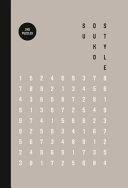Quotes from book
Truth and Method

Truth and Method is a 1960 book by the philosopher Hans-Georg Gadamer, in which the author deploys the concept of "philosophical hermeneutics" as it is worked out in Martin Heidegger's Being and Time . The book is considered Gadamer's major work.

“The free artist creates without a commission.”
Source: Truth and Method (1960), p. 76
Context: The free artist creates without a commission. He seems distinguished by the complete independence of his creativity and thus acquires the characteristic social features of an outsider whose style of life cannot be measured by the standards of public morality. The concept of the bohemian which arose in the nineteenth century reflects this process. The home of the Gypsies became the generic word for the artist's way of life.
But at the same time the artist, who is as "free as a bird or a fish," bears the burden of a vocation that makes him an ambiguous figure. For a cultured society that has fallen away from its religious traditions expects more from art than the aesthetic consciousness and the "standpoint of art" can deliver. The Romantic desire for a new mythology... gives the artist and his task in the world the consciousness of a new consecration. He is something like a "secular saviour' for his creations are expected to achieve on a small scale the propitiation of disaster for which an unsaved world hopes.

Source: Truth and Method (1960), p. 289
Variant translation: In truth history does not belong to us but rather we to history. … The focus of subjectivity is a distorted mirror. Individual self-reflection is merely a flickering in the closed circuit of historical life. That is why the prejudices of an individual are —much more than that individual's judgments — the historical reality of his being.
As quoted in Tom Neton, "Hermeneutical Truth and the Structure of Human Experience: Gadamer's Critique of Dilthey" in The Specter of Relativism: Truth, Dialogue, and Phronesis in Philosophical Hermeneutics (1995) edited by Lawrence Schmidt.

Foreword to the Second Edition, p. xxiv.
Truth and Method (1960)
Context: What man needs is not just the persistent posing of ultimate questions, but the sense of what is feasible, what is possible, what is correct, here and now. The philosopher, of all people, must, I think, be aware of the tension between what he claims to achieve and the reality in which he finds himself.